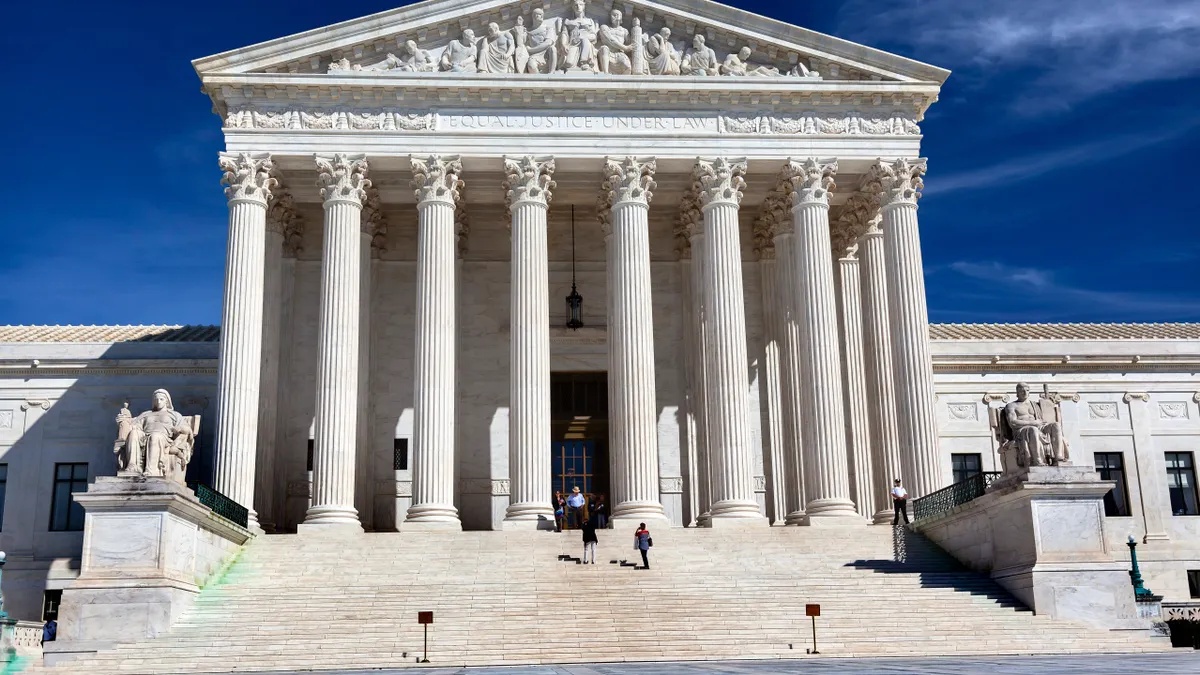WASHINGTON, D.C. — The U.S. Supreme Court heard oral arguments Wednesday on Espinoza v. Montana Department of Revenue, a First Amendment case brought by Kendra Espinoza and other parents that educators worry could set a precedent requiring government funding of religious schools.
The case comes after the Montana Supreme Court ruled that a state tax-credit program incentivizing donations to private school scholarships violated the state’s constitution, on the basis that its “No Aid clause” bars the use of public scholarship funds for religious schools. Considering the vast majority of private schools in Montana are religious, however, at least some of the scholarship funds were directed toward supporting religious education. As a result, Montana invalidated the entire program.
Now before the court in the Espinoza case is the question of whether Montana violated the First Amendment's religious protections by striking down a program that provided tax credits for donations to private schools, including religious ones.
Parents seeking to send their children to private schools, the petitioners claim, are “still being denied scholarships” based on their religious identity. “If the court had shut down the program because it included Muslim schools or African-American schools, there's no question that would be unconstitutional,” Richard Komer, attorney for the parents who filed the lawsuit, said during the oral arguments.
But Adam Unikowsky, the attorney for Montana, said the state is “not defending religious bigotry,” but rather the right of states to not fund religious activity through religious education. Justice Ruth Bader Ginsburg noted Montana “treated no differently” parents sending their children to religious schools than parents of children who are going to secular private schools.
While the justices were divided over whether the case comes down to religious discrimination or the separation of church and state, Justice Stephen Breyer raised a question on many educators’ minds: With millions of public dollars invested in public education, could the outcome of this case, if decided in favor of Montana, require the proportionate funding of religious schools as well?
The answer to that question will not be answered until the ruling is released in June.
Educator concerns
Montana principal and National Association of Elementary School Principals President David Wick said that the tax-credit program, which only matched up to $150 in donations, did not directly affect public education funds while it was briefly in effect. But, Wick told Education Dive he is worried about the precedent this case could set.
“We are already underfunded,” Wick said, noting Montana is lagging in teacher pay when compared to the nation at large, and that future programs funding religious education could worsen the situation. “Once these programs are put in place, then other programs like it would continue to undermine public education.”
Sasha Pudelski, assistant director of policy and advocacy of AASA, The School Superintendents Association, said in an interview, “Every time public dollars are diverted, superintendents have fewer resources" resulting in cuts primarily to mental health services, professionals who work with students on electives and paraprofessionals who provide services to students with disabilities.
NASSP spokesman Bob Farrace noted the case also builds on an existing competition between private and public schools “forcing school leaders to have to become marketers instead of being instructional leaders.”
“With fewer dollars coming in, [funds] will be going toward slick marketing brochures instead of instructional programs,” he said.
But Jeffrey Wall, principal deputy solicitor general for the Department of Justice, speaking during the oral arguments in favor of the petitioners, pointed out the court can decide in favor of the petitioners in a way that still preserves both the separation of church and state and funding for public education.
“If they want to open up the funding, they can put secular limits on the program,” Wall said, adding states can structure programs to only support subjects like math and engineering.
“This is really just about bringing a level equality to people’s choice and how they educate their children,” Jamison Coppola, legislative director for American Association of Christian Schools, told Education Dive.
Correction: In a previous version of this article, David Wick was misidentified. He is the president of the National Association of Elementary School Principals.






















